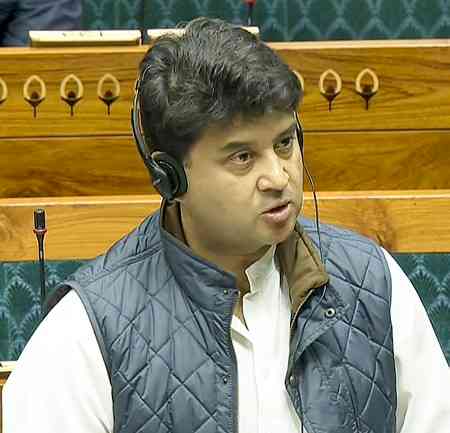'Green hydrogen can boost India's renewable energy efforts'

New Delhi, Oct 21 (IANS) Battery storage and green hydrogen -- markets that are critical for India's renewable future and energy security -- could scale up rapidly in the country, bolstered by government policy and private company ventures, according to Institute for Energy Economics and Financial Analysis (IEEFA).
Grid-scale energy storage technologies will play a critical role in India's decarbonisation journey, helping to integrate the 450 gigawatts (GW) of variable renewable energy capacity targeted by 2030 into the grid, said a new briefing note from the IEEFA.
"The Government of India is giving the right push for the Battery Energy Storage Systems (BESS) market through production-linked incentive schemes, big battery storage capacity tenders and improving the market structure to be more competitive," the note's author and IEEFA analyst, Kashish Shah said.
"India's battery market could boom quickly," Shah said and added, "just as we have seen happen in other markets, such as the US and Australia".
Ahead of the UN's annual climate change conference (COP26) to be held at Glasgow from October 31, India has already announced to enhance its installed renewable energy capacity to 450 GW up from its earlier announcement of 175 GW by 2022.
To date, the cost of grid-scale battery storage has been prohibitive for India, which does not yet have a domestic battery manufacturing value chain, but globally the cost of battery storage has reduced dramatically - from USD 1,100/kWh in 2011 for a standalone lithium-ion battery set-up, the price is projected to drop to USD 58/kWh by 2030.
Pointing out to the initiatives taken by two major private companies, the note observed that the involvement of credible government-owned counter parties is vital to enabling capital deployment for battery storage.
"State-owned entities have also now come into the fold for facilitating grid-scale battery storage development," Shah said, citing the Solar Energy Corporation of India (SECI) and NTPC calling for tenders to develop 2,000MWh and 1,000MWh of battery storage capacity, respectively, having built strong track records as credible counter parties by developing renewable energy capacity of more than 40GW.
In another policy development, the Central Electricity Regulatory Authority (CERC) aims to bring battery storage and pumped hydro storage (PHS) into the ambit of the frequency control and ancillary services (FCAS) market.
"Valuing the speed and accuracy of grid balancing services that batteries and PHS could provide at competitive market prices will allow a clear revenue stream for the owners of these storage assets," Shah said, adding, further regulations will be required to guide development and underpin commercial success.
"As with batteries, the green hydrogen industry will require the building of a domestic hydrogen production value chain," he said.
The most important part of this value chain is the electrolysers for which the costs have come down across the globe, led by makers in the US, China, and Scandinavia.
The note pointed out how there is also interest in developing industrial clusters that pair green hydrogen production with its industrial use, such as hubs of steel, coal, fertiliser, biogas, and heavy transport and said, these are all industries that have much to gain from a transition to green hydrogen.



 IANS
IANS 










